Embracing a Boundaryless Future: The Era of Knowledge Without Owners
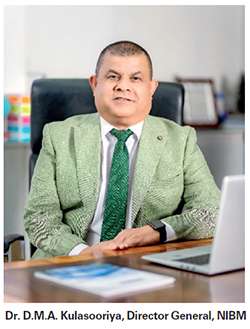 The global educational landscape is currently undergoing a significant transformation, with the online learning sector expected to achieve a remarkable annual growth rate of 9.1% between 2018 and 2026. Sri Lanka too stands at the forefront of this educational revolution, experiencing a surge in online learners as statistics reveal a substantial presence in the digital learning domain. This surge is unsurprising given that there were 14.58 million internet users in Sri Lanka as of January 2023. Within the expansive realm of online learning, explicit knowledge is readily accessible, providing learners with theoretical insights and information.
The global educational landscape is currently undergoing a significant transformation, with the online learning sector expected to achieve a remarkable annual growth rate of 9.1% between 2018 and 2026. Sri Lanka too stands at the forefront of this educational revolution, experiencing a surge in online learners as statistics reveal a substantial presence in the digital learning domain. This surge is unsurprising given that there were 14.58 million internet users in Sri Lanka as of January 2023. Within the expansive realm of online learning, explicit knowledge is readily accessible, providing learners with theoretical insights and information.
However, the essence of tacit knowledge, shaped through experience and personal interactions, remains incomprehensible without the guidance of mentors and real-world connections. This dual nature indicates the importance of a balanced educational approach that integrates both explicit and tacit knowledge to foster comprehensive learning experiences. Traditionally, knowledge ownership was confined within the boundaries of institutions, individuals, or organizations. However, in the digital age, these boundaries are rapidly disappearing, ushering in an era where information transcends ownership.
This paradigm shift towards a boundaryless future challenges conventional notions of knowledge possession and paves the way for collaborative learning and the sharing of intellectual resources. This article explores the profound transformations in the landscape of knowledge ownership, examining the evolution of this concept, the emergence of future platforms for knowledge sharing and development, the challenges faced by knowledge owners, and how to prepare ourselves for the challenges imposed by the transformative role of online learning platforms.
Evolution of Knowledge Ownership
Throughout human history, the acquisition and ownership of knowledge have undergone a remarkable evolution, shaping the very fabric of societies. In ancient civilizations like Mesopotamia, Egypt, and Greece, knowledge was a privilege reserved for rulers, leaders, and religious organizations, who controlled access to education and resources. The Middle Ages witnessed a shift, with the Catholic Church becoming the custodian of knowledge through churches and universities, and the clergy assuming the role of intellectual guardians.
The Renaissance brought a transformative period where humanism and the printing press facilitated the widespread dissemination of knowledge, empowering scholars, artists, and scientists as new leaders in the realm of ideas. The Industrial Revolution then redefined knowledge ownership, associating it with private individuals and corporations holding patents and copyrights. In the contemporary landscape, knowledge ownership is multifaceted, involving individuals, corporations, governments, academic institutions, and research organizations, reflecting the influence of societal, technological, and legal dynamics on the ever-evolving narrative of knowledge acquisition and dissemination.
Future Platforms of Knowledge Sharing and Development
Decentralized Learning Platforms - According to a Deloitte report, the global blockchain market is anticipated to grow at a CAGR of 67.3% from 2021 to 2028. These platforms enable users to collaboratively create and validate knowledge, promoting transparency. Using blockchain, which is secure and unchangeable, knowledge becomes something everyone can access. This challenges the idea that education should only be for certain people in traditional systems. Open Access Initiatives - According to the World Bank, as of 2023, there are over 180 million active users on various Massive Open Online Courses (MOOC) platforms globally.
These initiatives break down financial barriers, ensuring that knowledge flows freely. Universities and research institutions worldwide contribute to a vast pool of information, transcending geographical and financial constraints. Artificial Intelligence and Machine Learning - A McKinsey report highlights that by 2025, AI and ML are expected to contribute $13 trillion to the global economy. These advanced technologies analyze extensive datasets, making valuable insights accessible to a broader audience. The democratization of knowledge through AI ensures that expertise is not confined to a select few, fostering inclusivity and accessibility.
It is outdated to say that “authority flows from those who know”, instead authority is now possessed by learners who are capable of creating new insights from databases generated by businesses and various learning platforms. Collaborative Platforms - According to a survey by Harvard Business Review, 89% of professionals believe that collaboration is crucial for success. Collaborative platforms serve as hubs for interdisciplinary knowledge exchange, fostering innovation. As contributors share both implicit and explicit knowledge, these spaces create a dynamic collection of ideas, challenging the notion of individual ownership in the pursuit of collective progress.
Challenges Faced by Owners of Knowledge
Knowledge owners grapple with incorporating technology into the traditional education system. As per a 2021 report by the International Society for Technology in Education (ISTE), a mere 30% of teachers globally feel adequately prepared to leverage technology effectively in the classroom. Student needs are in constant flux, with a Pew Research Center study noting that 73% of students in 2020 believed colleges only somewhat prepared them for the workforce. This highlights a gap between traditional methods and the dynamic skills demanded by today’s job market, posing a challenge in adapting curricula to evolving demands.
Universities and educational institutions struggle with financial challenges, aggravated by factors such as declining enrollment, reduced government funding, and escalating operating costs. According to data from the National Center for Education Statistics, public four-year institutions in the United States witnessed a 7% decrease in enrollment between 2010 and 2019. Most of the students in Sri Lanka are also moving away from public schools as evidenced by not attending advanced-level classes thus looking for alternative ways of learning.
The global nature of education presents both opportunities and challenges. According to UNESCO, the number of international students worldwide doubled between 2000 and 2020. While this internationalization enriches the educational experience, it also poses challenges related to cultural differences, language barriers, and diverse learning styles. Custodians of knowledge must navigate these complexities to create inclusive and effective learning environments. Incorporating innovative teaching methods poses a challenge for educators. A 2021 survey by the National Center for Education Statistics found that only 38% of teachers in the United States felt well-prepared to utilize technology for teaching. This lack of readiness impedes the adoption of modern pedagogical approaches, limiting the potential for engaging and effective learning experiences.
How to Prepare Ourselves for the Challenge?
In the contemporary knowledge landscape, an unwavering dedication to continuous learning is essential. The rapid expansion of information and technology necessitates a mindset focused on perpetual improvement. Recent statistics from the World Economic Forum reveal that 54% of workers will require significant upskilling by 2025, underscoring the pressing need for individuals to stay informed about emerging trends and technologies to maintain competitiveness in the job market. In the future, most universities will likely invite learners to have their knowledge and skills assessed and certified with different qualifications rather than guiding them through full-time courses at the universities.
As information becomes more abundant, the ability to critically assess and synthesize data becomes increasingly vital. A study in the Journal of Educational Psychology suggests that students who undergo critical thinking training exhibit notable improvements in problem-solving and decision-making skills. In the era of misinformation, discerning credible sources is paramount. A report by the Stanford History Education Group found that over 80% of students struggled to differentiate between a credible news source and sponsored content.
Educational systems must prioritize the development of critical thinking skills to empower individuals to make informed decisions in the face of an overwhelming amount of information. Collaboration lies at the core of the future of knowledge. McKinsey’s statistics indicate that companies with diverse leadership are 33% more likely to outperform their peers. Establishing robust networks and engaging in cross-disciplinary collaborations enhance collective intelligence. Embracing diversity of thought and collaborating with individuals from diverse backgrounds result in innovative solutions to complex challenges. Ensuring that knowledge remains a public good requires active support for open-access initiatives.
According to a report from the Scholarly Publishing and Academic Resources Coalition (SPARC), open-access articles receive, on average, 18% more citations than their closed-access counterparts. By endorsing policies that encourage the free exchange of information, we contribute to a future where knowledge is not restricted by ownership but is accessible to all. In conclusion, besides the dynamic context of Sri Lanka’s intellectual landscape, the traditional notion of knowledge ownership is undergoing a profound redefinition in the digital era. Aligning with Jeff Isabelle’s insightful perspective, it becomes apparent that we are not proprietors of knowledge; rather, we are subjects of “Time.” The ongoing democratization of knowledge, facilitated by open-access initiatives and collaborative platforms, signifies a departure from centralized control, fostering accessibility across diverse communities. In this transformative period marked by technological progress, we must navigate new platforms responsibly and ethically.
As we stand at the forefront of the future, the collective ownership of knowledge necessitates adaptation to this evolving paradigm, recognizing the combined influences of time, technology, and human agency in shaping the intellectual landscape. Wisely leveraging these changes is crucial, ensuring that the democratization of knowledge in Sri Lanka aligns with ethical principles and contributes meaningfully to the shared pool of human understanding.
















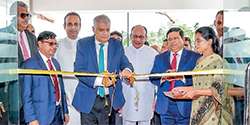
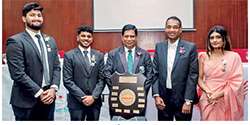
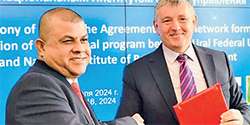
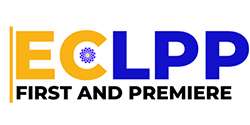
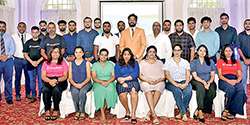
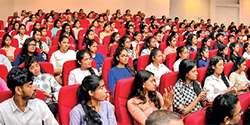
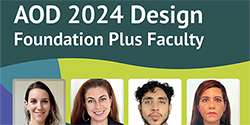

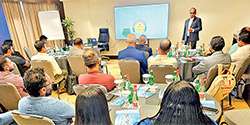
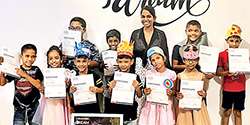
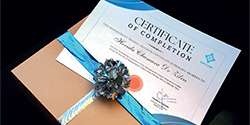
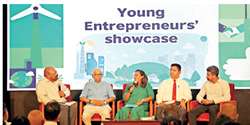
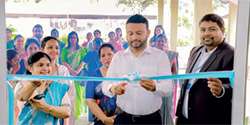
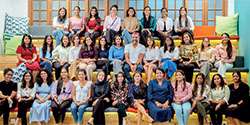
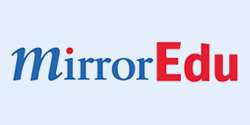
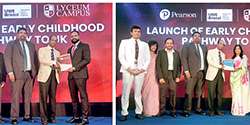


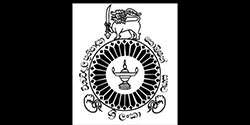
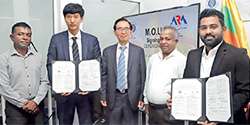
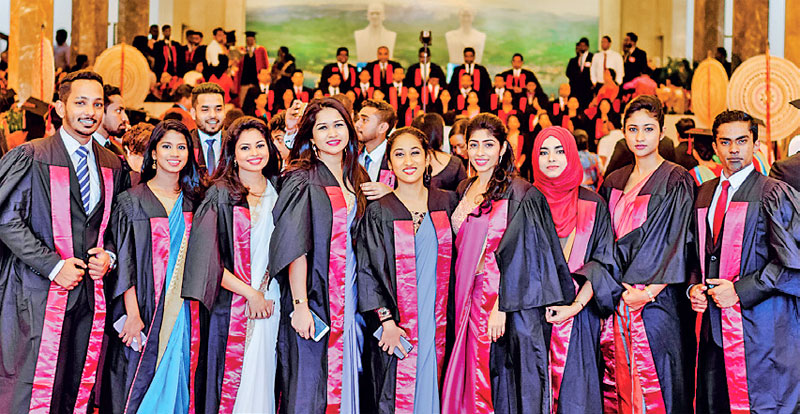

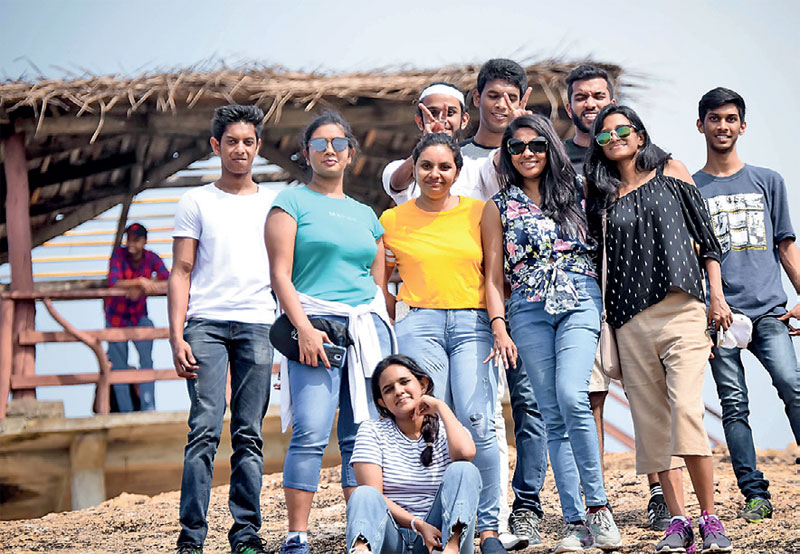
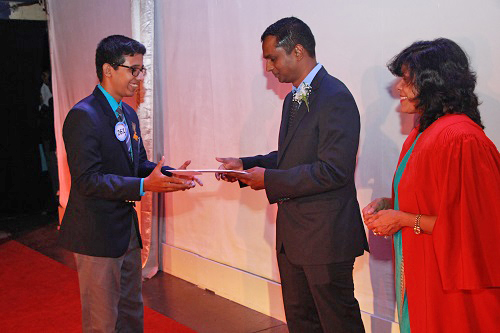

.jpg)

.jpg)
.jpg)
.jpg)
.jpg)
